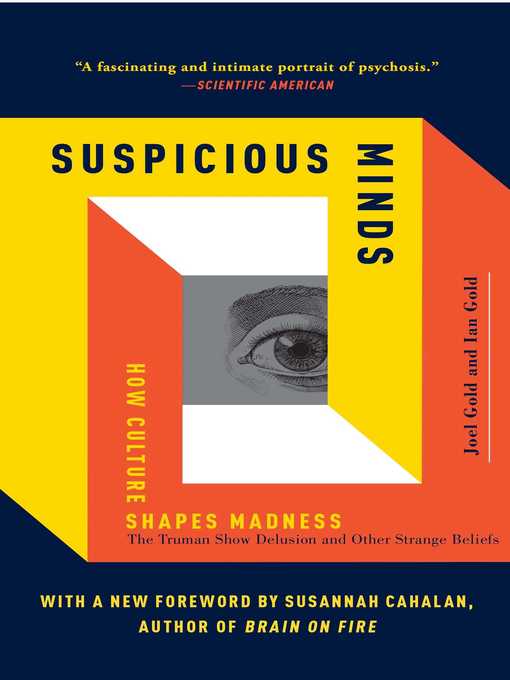
Suspicious Minds
How Culture Shapes Madness
چگونه فرهنگ بر دیوانگی تاثیر میگذارد؟
کتاب های مرتبط
- اطلاعات
- نقد و بررسی
- دیدگاه کاربران
نقد و بررسی

May 26, 2014
Brothers Joel (of the NYU School of Medicine) and Ian Gold (of McGill University) combine their knowledge and experience as psychiatrists to shed light on the history and future of the study of mental disorders, focusing on what is called the “Truman Show delusion.” They reject the idea that neuroscience and the brain are the determinants in the emergence of delusions—”what sorts of pills to prescribe and which kind of misfiring neurons the pills are meant to target”—and instead attempt to link social life changes to psychosis: “What this pill-and-neuron story misses is the larger narrative of social and cultural life going on around every patient, around every neuron.” Changes in social life like bullying, immigration, and even urban living are presented as potential factors in the emergence of schizophrenia, but the Golds do not provide enough convincing evidence to support their position. They also discuss how a faulty Theory of Mind—“the ability human beings have to think about the thoughts and feelings of others”—or “suspicion system,” a “special purpose” mechanism that helps individuals navigate through social situations, can result in signs of schizophrenia. The link between both concepts and environmental factors is weak; readers are left to assume they are neurological issues. What the Gold brothers end up demonstrating is that no simple answer can fully explain what happens when a person has “faulty reasoning.” Figs. & illus. Agent: Max Brockman, Brockman, Inc.

July 1, 2014
In the early 2000s, psychiatrist Joel Gold (New York Univ. Sch. of Medicine) encountered patients at New York's Bellevue Hospital who claimed that they, like the main character in the 1998 movie The Truman Show, were unwitting subjects of a reality television series. These incidents led him and his brother Ian (Canada Research Chair in Philosophy & Psychiatry, McGill Univ.) to investigate the historical, cultural, and social factors of mental illness and the role delusions play as symptoms of psychotic disorders. Through the analysis of clinical studies, the Golds demonstrate that while delusions can be categorized according to approximately a dozen themes, the way people experience and describe their delusions varies across time and culture. The authors find that social factors correlate with vulnerability to mental illness and contend that fantasies are not solely owing to biological malfunctioning of the brain--one's social and cultural milieu also play a part. The Golds suggest that delusions may have evolved as part of a human cognition system primed to alert and react to environmental threats. VERDICT This fascinating historical and cultural study, illustrated with sidebar case narratives, is recommended for academic and large public libraries.--Lucille M. Boone, San Jose P.L., CA
Copyright 2014 Library Journal, LLC Used with permission.

























دیدگاه کاربران